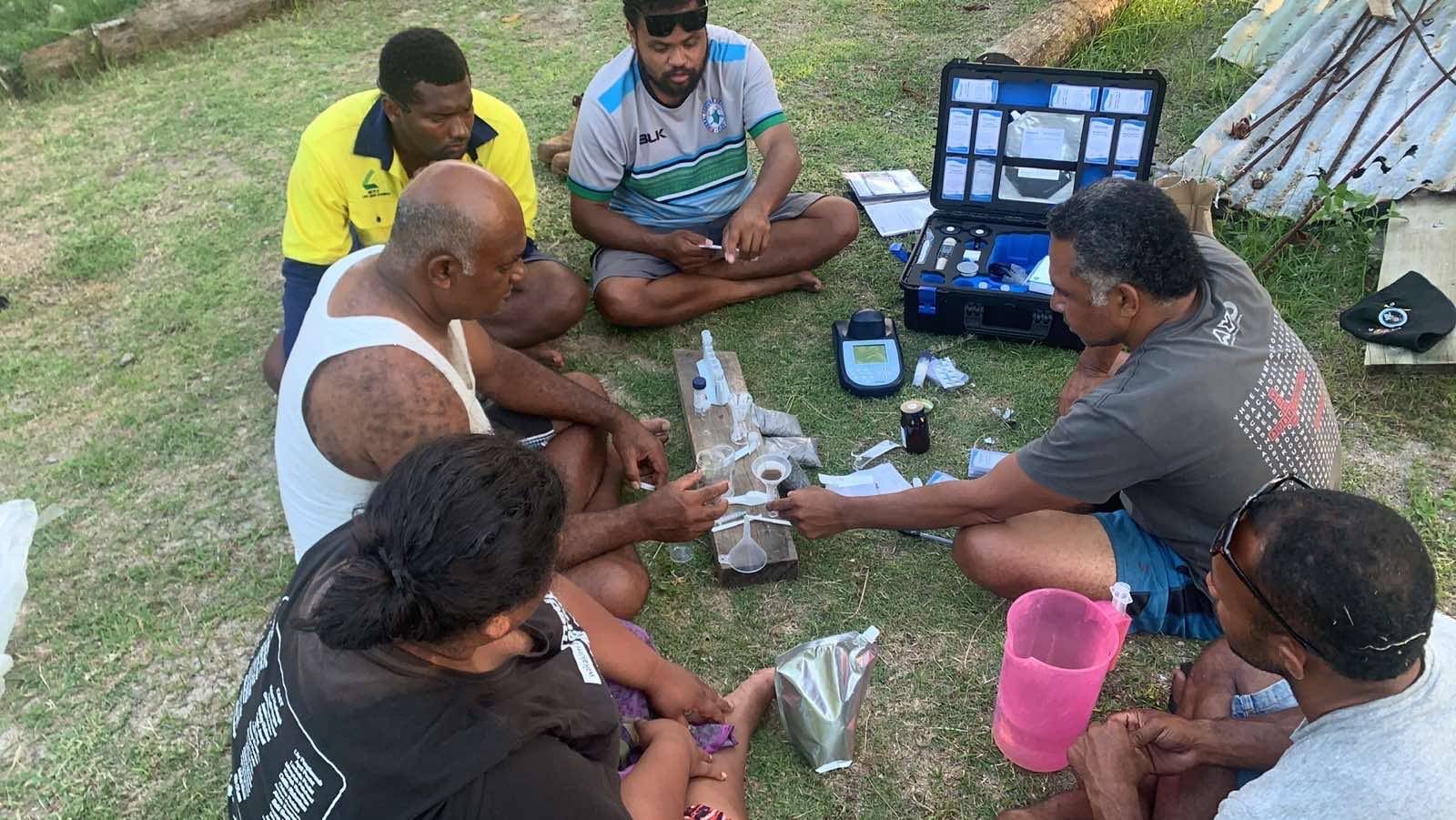
Yasawa and Mamanuca Islands focus on Forest and Landscape Restoration
With support from the German Government through the International Climate Initiative (IKI), the Yasawa (Naviti district) and Mamanuca (Malolo district) Islands will be used aspilot sites for the Forest and Landscape Restoration (FLR)project. The sites were chosen as a result of the Ministry of Forestry’s efforts to protect and restore dry forest ecosystems in Fiji.
Tropical dry forests are among the most endangered forests in the Pacific region and the world where most of these forests have long ago been converted to ‘talasiga’ savannas through dry season burning and anthropogenic activities. Of the few remnants and endangered patches of dry forests in Fiji, some are found in the Mamanuca and Yasawa group of islands. These remnant patches have endemic species but continue to be threatened by anthropogenic disturbances due to a lack of knowledge and awareness on the importance of Tropical Dry Forest at the community level, through competing land use priorities, unsustainable land management and a lack of conservation management and action plans. Furthermore, natural disturbances from cyclones and natural disasters cause invasive species like Leucaena leucocephala to encroach on and later dominate these forest areas.
Prior to the launch of the FLR project in the two
districts, collaborating partners including the Food and Agriculture
Organisation (FAO), representatives from the
Ministry of Forestry, Ministry of Agriculture, Ministry of Fisheries,
Ministry of Lands and Mineral Resources, Conservation
International, Commissioners Office – West, Nadroga and Ba Provincial
Office, iTaukei Lands Trust Board (TLTB), Vinaka Fiji and Mamanuca
Environment Society were engaged
in collating baseline information, conducting training for
seed collection and propagation and bee keeping, and awareness
and community consultation at the 13 project sites. The
baseline assessment is important as it provides information on
current status of the project sites prior to project implementation
and thus sets the basis and indicators to be measured as part of
measuring project impacts. The three weeks activity was also an opportunity to
meet with communities and report back preliminary findings from the baseline
assessment.
The baseline assessment resulted in the delivery
of various outputs including, current land use and proposed land use
map/plan, proposed sites for restoration identified by the communities,
draft Integrated Village Development plans with respective restoration
management plans, status of ground water and recommendations for
conservation and protection, status of fish and coral populations and seed
collection, seed collection and seed propagation training to 71 community
members from Malolo and Naviti Districts, 56 of whom are
females and 15 are males.
Apiary (Beekeeping) training was also conducted for selected
youths from the 13 communities. 28 youths were trained of which 8 were females
and 20 males.
Paris Agreement in Action
Speaking at the launch of the two sites in
mid-December,Executive Director Operations and Services, Manasa Luvunakoro
said “the IKI FLR Project is an implementation of the Paris
Agreement in Action – Upscaling Forest and Landscape Restoration to achieving
the National Determined Contributions (NDCs) and ties in well with
the Fijian Government’s 30 Million Trees in 15 Years
(30MT15Y)Initiative which aims to reforest degraded areas, increase forest
cover and mitigate climate change impacts”.
He further acknowledged the endorsement and support of the
communities in taking ownership of the project which was evident during the
launch and also the support of the two project partners, Mamanuca Environment
Society looking after the Mamanucas and Vinaka Fiji looking after the Yasawas.
To mark the occasion, native
and fruit trees were planted inSolevu village, Marou village
and at the Ratu Lalabalavu School compound (Solevu,
Malolo) where the launching events were held.
In order to ensure that the restoration is sustainable in the long
term, socio-economic activities such as bee-keeping, value adding of
staple crops and vegetables, wood and handicraft and floriculture training
(orchids and flowers) linked to restored land will be developed. Farming
tools and beehives were distributed to the villagers to support these
livelihood initiatives in the communities.
With
COVID-19 affecting the tourism sector, many people
hadreturned to their villages to start agricultural or other
economic ventures. While supporting livelihood initiatives, it
is also important to plan appropriately to ensure that new
agricultural and other economic activities have a minimal impact on the
environment and that they also contribute to the sustainable management of existing
natural resources.
Village headmen representing both districts acknowledged the
consideration and efforts of the Fijian government and the two partners in
selecting their districts as project sites for FLR as this will help the
communities in their socio-economic livelihoods whilst also mitigating the
impacts of climate change.
Building resilience to Climate Change
For the Naviti District, the launch of the IKI Project
in Marou village was done together with the Pacific Island
Forest Restoration Initiatives (PIFRI) project, a US Government
funded project supported also by the Ministry of Forestry. The role
of PIFRI is to enhance the capacity of developing Pacific Island
countries to plan, implement, and monitor restoration initiatives for the
continual provision of ecosystems goods and services from forested ecosystems,
improved carbon sequestration, and strengthened resilience to climate
change. PIFRI project sites are
in Soso and Muaira villages.
Collectively, the IKI
FLR project sites in the Yasawa and Mamanuca Islands will
be implemented over two years and aims to restore
400 hectares of degraded
land, which will definitely improve the resilience
of these island communities to Climate Change.